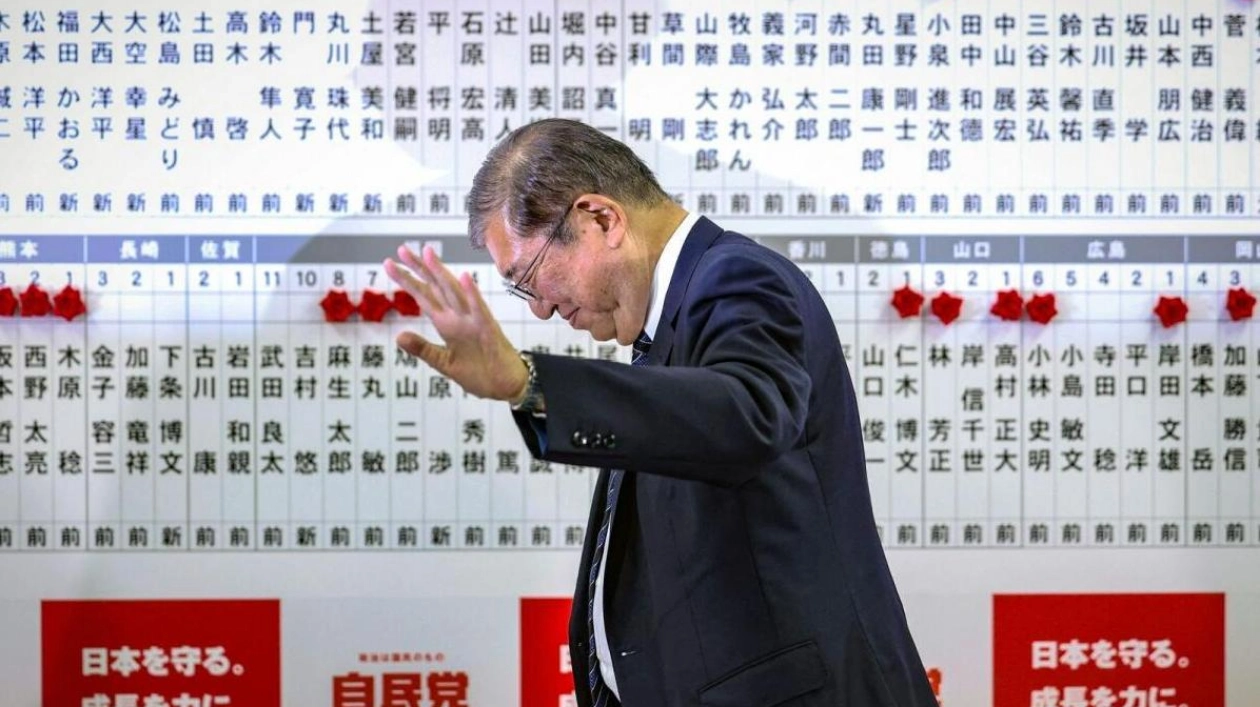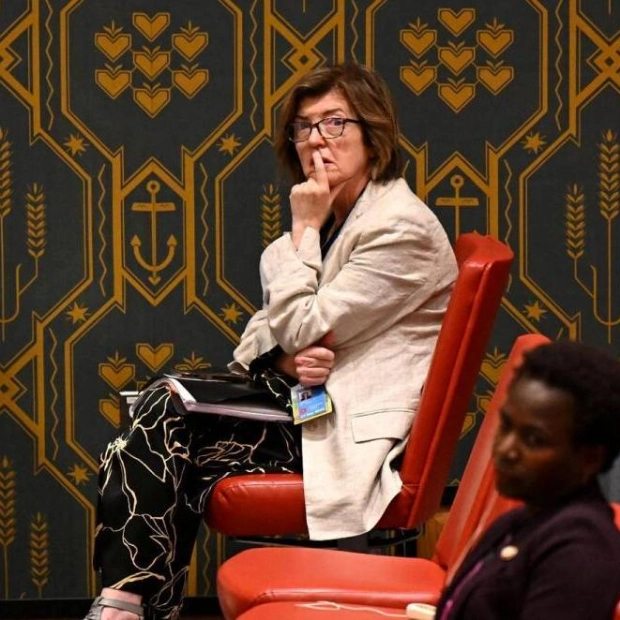Japan's Prime Minister Shigeru Ishiba concluded his media address at the Liberal Democratic Party (LDP) headquarters in Tokyo on Sunday, following the country's general election. – AFP
On Monday, media projections indicated that Japanese Prime Minister Shigeru Ishiba's ruling coalition failed to achieve his proclaimed 'victory line' of a majority in the snap parliamentary elections. AFP delves into the potential paths forward for the Liberal Democratic Party (LDP) after its poorest performance since 2009, and the future prospects for its embattled leader Ishiba, who assumed office on October 1.
Ishiba, who has been highly critical of former Prime Minister Shinzo Abe and his establishment politics, has often leveraged his relative popularity among voters as the LDP's 'intraparty adversary'. However, while this strategy secured him the party leadership, the election results suggest that citizens were more focused on reprimanding the LDP due to a scandal involving party members embezzling funds from fundraisers.
The recent appointment of moderately conservative former Prime Minister Yoshihiko Noda as leader of the main opposition Constitutional Democratic Party (CDP) also did not work in Ishiba's favor. Masato Kamikubo, a politics professor at Ritsumeikan University, commented, 'I think the majority of Japanese people trust Noda. He is a very stable politician.'
According to projections by public broadcaster NHK, the LDP's seats decreased to 191 from 259 in the previous election, while the CDP's seats surged to 148 from 96. Komeito, the LDP's coalition partner, saw a decline to 24 seats from 32, with new party chief Keiichi Ishii losing his seat. Analysts note that this situation is complex, given the fragmented opposition and the memories of its tumultuous rule between 2009 and 2012.
Yu Uchiyama, a political science professor at the University of Tokyo, stated, 'The possibility of a handover of power to the opposition isn't zero, but there are far too many opposition parties for any of them to reach a majority.' Policy differences and past conflicts continue to divide and hinder opposition parties, ranging from communists to the liberal CDP, the centrist Democratic Party for the People (DPP), and the 'reformist conservative' Japan Innovation Party.
During the campaign, CDP leader Noda declared it 'impossible' to collaborate with the LDP, having participated in previous no-confidence votes. The Japan Innovation Party's head, Nobuyuki Baba, also dismissed any alliance with the LDP in its current scandal-ridden state as 'impossible'. The centrist DPP, led by Yuichiro Tamaki, denied any intention to join the coalition but left the door open for a 'partial coalition' on specific policies.
Consequently, Ishiba is likely to lead a minority administration, seeking support from other parties on a case-by-case basis. However, this approach could destabilize Ishiba's emerging power base and make him vulnerable to challenges from within his party. Speculation is mounting that Ishiba may be compelled to resign due to the election debacle, potentially making him the shortest-serving prime minister in Japan's post-war history.
In a subtle denial of this scenario, Ishiba responded affirmatively when asked if he intends to fulfill his duties as prime minister. Yosuke Sunahara of Kobe University noted, 'If the ruling coalition or even just the LDP loses its majority, Ishiba will face harsh criticism from party members.' However, the ruling coalition's loss of a majority in the Lower House underscores public dissatisfaction with the political funding scandal. Sunahara added, 'If Ishiba is ousted while the party tries to downplay the issue, public backlash against the LDP will intensify, making it difficult for Ishiba's rivals within the party to criticize him.'
Source link: https://www.khaleejtimes.com






